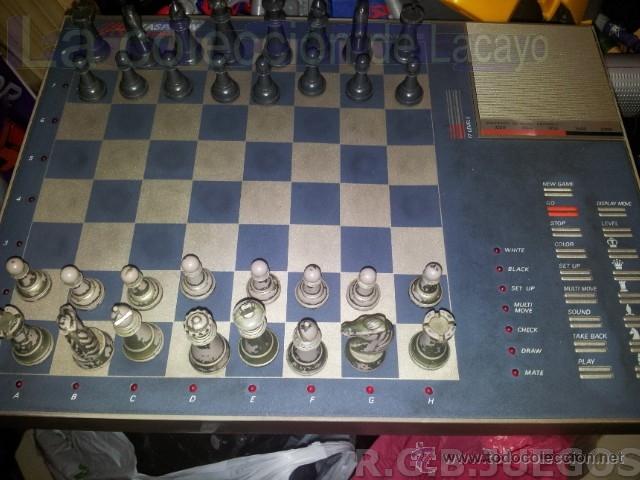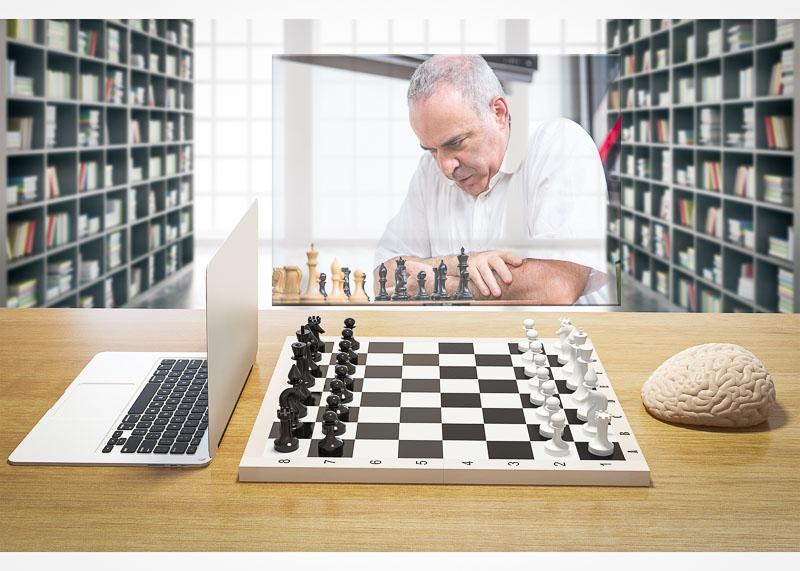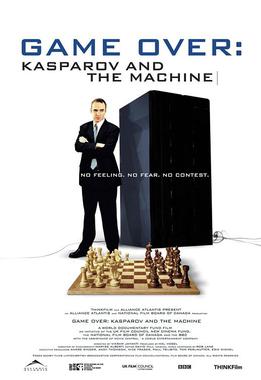
Choice is human because to make the right choice we have to understand what matters and why”

“When a machine makes a decision, it uses computation to go all the way down. Demis Hassabis, the founder and CEO of DeepMind, was, as is well known, a strong chess player himself, and his company’s AlphaGo vanquished Lee Sedol, one of the world’s best players of Go, a Chinese strategy game with many more move possibilities than chess, in 2015. Kasparov went on to talk about how Google DeepMind’s AlphaZero goes well beyond the data crunching capabilities of Deep Blue. Not because they understand chess, but because they make almost no mistakes,” he told the audience. “There has been a steady, but slow, drive upwards. But the strongest chess engines today – Stockfish, Komodo – are in the 3100-plus category, so much stronger that competition even with Magnus Carlsen would make no sense. Magnus Carlsen, the Norwegian current world champion, is currently at 2842. Bobby Fischer, the US world champion, was rated 2785 in 1972 at his peak. In chess, there has been a gradual improvement in humans, according to the Elo ratings. Each player has a number, which goes up or down depending on the outcomes of games between rated players. Elo ratings are the conventional way to measure the strength of chess players. The march of the machines in games like chess has been impressive. “Deep Blue was still a number-crunching machine, 200 million positions per second, but it couldn’t unlock the secrets of human intelligence,” he said. Kasparov was unhappy at losing, but took comfort, too.

Kasparov’s matches against Deep Blue were, at the time, hailed as “the brain’s last stand” on the cover of Newsweek. And, in truth, they just have to be better by making fewer mistakes.” “They also thought for machines to prevail in chess, machines would have to be perfect. “But they over-estimated what machines could do in the short run, and under-estimated what they could do in the long run,” he said. Tableau’s Andy Cotgreave (left) and chess grandmaster Garry Kasparov (right) Kasparov adverted to the great minds of computer science, pre-eminently Turing, who believed that when a machine could beat a human at chess, that would be “the dawn of artificial intelligence”. And Kasparov became the champion scalped. The scalp of the world chess champion had, he recounted, become a “holy grail” for computer scientists – from Alan Turing, who was himself a fine player, onwards. Kasparov joked that his big mistake when playing IBM’s machine in 19 was not to ask for stock options – IBM’s stock got a short-term boost from Deep Blue’s victory. The computer made fewer mistakes in the games it won, which is the essential, ever-increasing advantage machines have over humans in chess, and similar games.

#KASPAROV CHESS COMPUTER SERIES#
Kasparov speaks with particular authority on these matters because he was, as the reigning world chess champion, famously beaten by IBM’s Deep Blue computer in 1997, over (a second series of) six games. AI might be bad, in respect of its strength in image recognition, for radiologists, but it is good for radiology, and therefore for patients. And that any losses for individuals are outweighed by “a collective win” as any automated discipline gets better – radiology being a prime example. The general thrust of his keynote speech, which turned on his 2017 book, Deep Thinking, was that humans are not being replaced by artificial intelligence, but are rather being promoted.

Kasparov takes particular comfort, he told the audience, from a quote by Cornell University mathematician Madeleine Udell that “only a human can determine if problem is defined well”. “It is like a medieval religious debate, with a small group preaching that it consolidates the solving of the world’s problems, and a much larger group of doomsayers saying it is the end of humanity, the end of the world. “There is a thick fog of mythology surrounding AI,” he said.


 0 kommentar(er)
0 kommentar(er)
